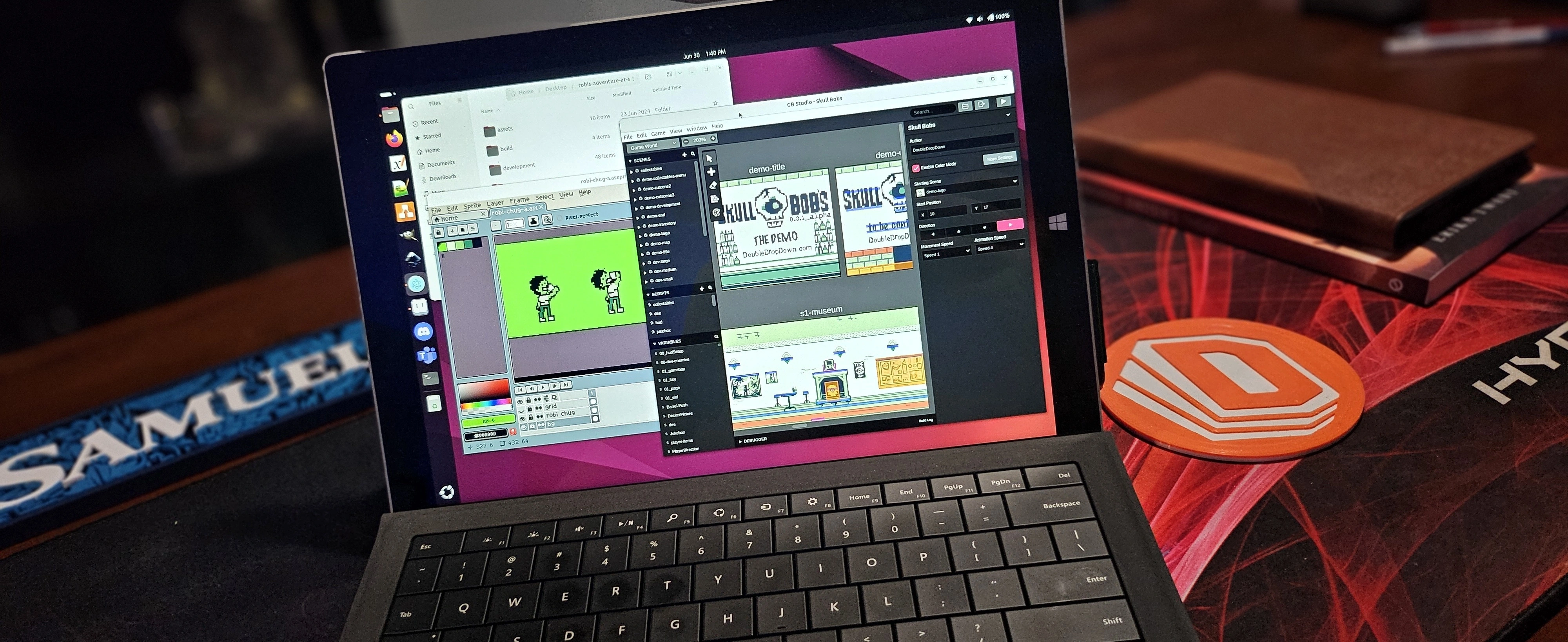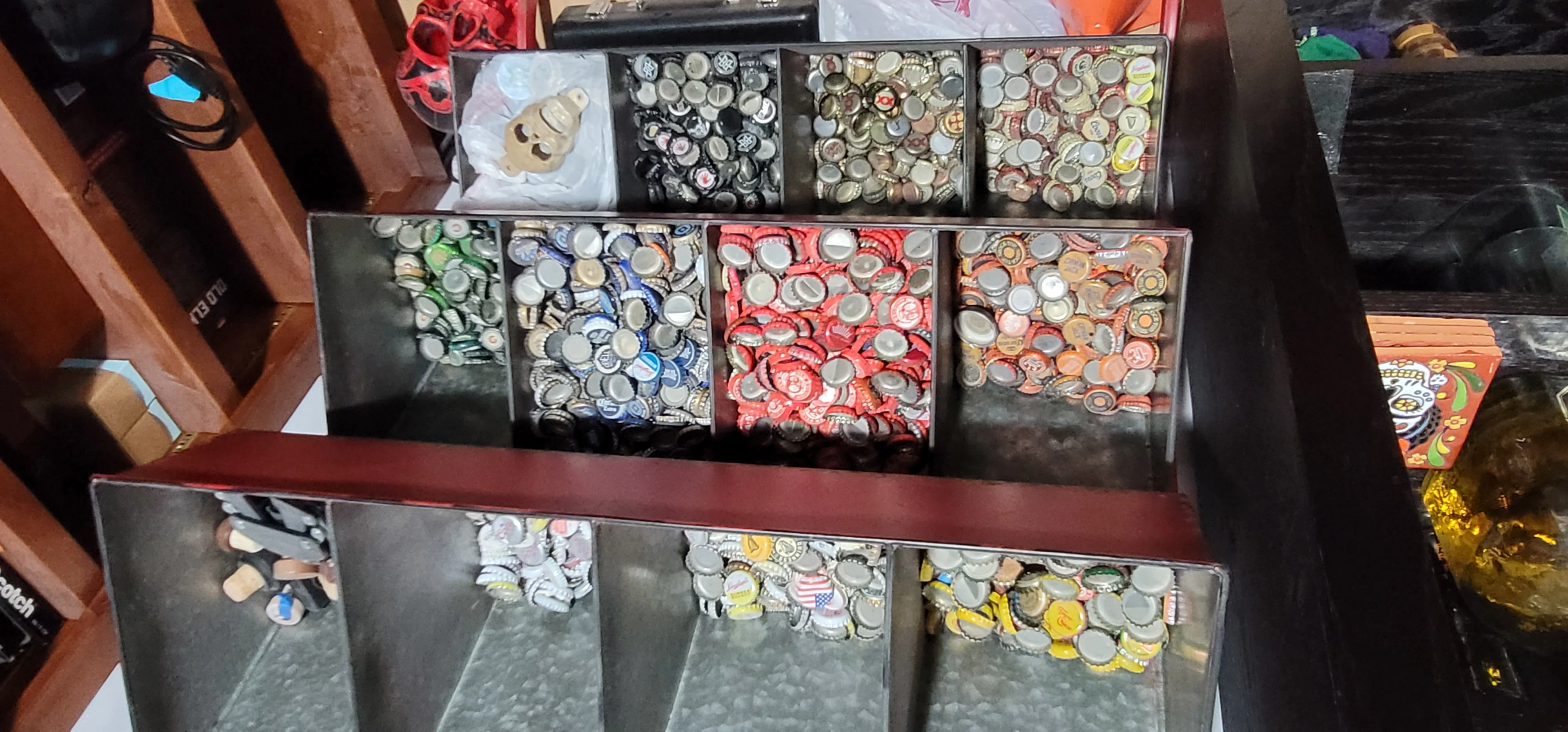Dang it. Thanks for the update!
Thank you so much for your time. The amount of effort in your response is amazing and rich with details!
Sounds like it's a bust to use terminal on a tablet. Damn.
I was looking at Lenovo and this is good input. It sounds like everyone is not a fan of the tablet keyboard and the terminal is straight bollocks no matter the distro. I keep hearing Fedora and Wayland. I'm going to have to learn about them a bit more.
I have been on Lemmy for awhile and this post has been the one to gain the most traction. Thank you, this helps even further. I scratched the surface of immutable and this further dissects it into deeper "categories". My first thought is that, if I didn't know about immutable distros in the first place (aside from the meaning of the term), I probably wouldn't know what I'm missing or gaining.
My uses for Linux will grow across 3 categories.
-
Business and office work. Mainly spreadsheets, documents, presentations, and virtual meetings
-
3D Design, 3D Printing, bitmap and vector graphics editing, coding, and retro video game development
-
Streaming via OBS, ATEM, webcam, HDMI capture, and various USB inputs and devices.
I have tried building machines on non-tablets and have got 80% of the way there with all 3. The tablet has me 100% with 1 & 2. This all gives me a greater understanding that helps me avoid and research more into the options based on needs.
Yeah, me too. It just works!
Xournal++ is amazing! It's really the reason a Linux tablet will work for me. I also appreciate using GB Studio and Aseprite with the pen. Makes retro game developing a lot more fun!
I hate that this post caused a fight here. I appreciate feedback and learning.
If I'm taking something away from this exchange is that immutable distros are a thing I need to understand better. In a way you are both helping me see some other aspects I haven't considered. If I were to go immutable there are some limits on what I can do, though there are some benefits in terms of security and app containerization. Based on some quick research immutable distros have been around but honestly I didn't really know any details. On the other hand it sounds like Ubuntu pushes packages my way and I might want want to explore so other options.
Thanks for the insights and I plan to do a lot more research on how I might proceed. I may have it working on one device, but adopting what is right for my workflow and needs is going to take some more effort. Best.
Thanks for these insights. From my laymen experience with Linux, I am a bit fuzzy on all the distros and variants. What's the major difference between Ubuntu (or whatever distro) and what you described? From your perspective
What changed to make it happen? I am so done with other OS and Linux does everything I need. I really need to learn more about what's happening and how to better use it so I can further customize and configure.
Ok this is getting to the question I had. I found a few YouTube videos that went into detail about updating the kernel. I was wondering what's the purpose when it was working as well as it has. I'm going to try to do this and follow the guides. Initially I had to overcome a BitLocker issue and a bug where I couldn't overwrite the partition. Once I finally got Ubuntu running I was ready to dive into making it touch compatible, but it was already there. I suspect this makes it even better
It sure did. That's why I was surprised. Thank you!
Ok, that makes sense. I suppose a Surface Pro is still kinda a computer with a touchscreen. Overall I was impressed with how smooth the experience was and look forward to it developing.
It worked immediately without much fuss. That's why I was scratching my head. Was it always this easy!? I'm enjoying the experience so far
Thank you, that gives me a direction to start researching. I've been wondering the experience and it seems like it has been developing.
On this Surface Pro, touch, rotation, and even the pen is working! I didn't expect it to just work and it is.
Finally coming around to using Linux. How's it on a tablet?


I'm 43 and not really starting using Linux. I've dabbled with distros on and off over the years, but I never made the full switch because work always had some program or policy that just wouldn't play nice with Linux. With all the crappy Microsoft decisions, bloatware, and ads I decided to try and use Linux exclusively on a personal device, and I'm absolutely loving it!
I've been working with Ubuntu as my main distro, and I've also been playing around with distros on a Raspberry Pi. To really challenge myself, I installed Linux on an old Surface Pro 3, and guess what? It just works! I was pleasantly surprised by how smooth the setup was and how well it performs.
I missing any key steps or tips to make the experience even better on a Surface? Any insights would be greatly appreciated. I was planning to buy a new tablet that runs Linux but this is working better than expected. I'm really enjoying the flexibility and control Linux offers and want to keep this momentum going.
I have read up and tried plenty, just looking for some perspectives out there specific to your tablet experiences.
EDIT Thank you for all the suggestions and insights! I'm going to continue using the Ubuntu build for the next few months. Still lots more to learn, but I'm excited to see how this goes. I have everything setup I need to function as a Linux only tablet experience. <sigh of relief> no more dependency on Windoze.
I read the title and thought, "Oh is this another ad for Linux?"
Did you try the Serrif suite of Affinity products? Photo, Designer, and Publisher. They helped me step away from Adobe design tools. https://affinity.serif.com
Yeah, Lemmy uploads made it this way. I even tried to correct it twice. When it didn't work I shrugged and let it be because ain't nobody got time for that shit.
I was thinking of making a pixel-like mural where I figure out how to use all the colors I have. I was thinking of crowd sourcing it with friends and acquaintances. Then I realized I would probably end up with a huge multi-color bottlecap penis mural in my shitty real-life remake of bottlecap r/place.
I guess it could unlock a special achievement to find it when the nukes fall.
To the guy that collected bottle caps for a month... 22 years later...


So I started collecting bottle caps in college when I turned 21 with the rule that I had to be the drinker of the brew. 22 years later I'm still collecting and now color coding without purpose or end goal.